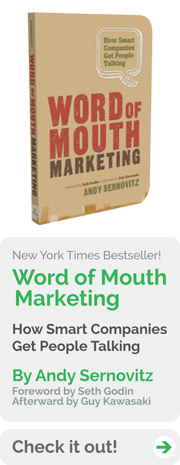This is a guest post from Douglas Atkin, CEO at The Glue Project and author of “The Culting of Brands.”
The engine of loyalty is community. The engine of community is mutual support.
The most powerful agent in creating loyalty is belonging. I would argue that the main ingredients of a successful community all create a degree of loyalty that is hard to match by any other means. Ingredients such as:
- An emotional bond with others in the group
- An alignment between your own values and those enshrined in the community’s worldview
- Therefore an alignment with the values of the others in the group
- Shared experiences, memories, rituals and goals
- In some cases, solidarity in the face of a threat.
And I’ve not included the most obvious sign of, and outcome from, a successful group that leads to unbelievable stickiness: mutual support.
From the hundreds of interviews I’ve had with members of all kinds of communities — brand communities, cults, religions, bands of activists, knitting groups — I’ve found that you can tell you’ve got a successful community on your hands when you see evidence that its members are helping each other out. And this is often in ways that have nothing to do with the main purpose of the group. Here is a typical quote taken at random from a member of a Meetup that explains what I mean:
“We have such a diversity of members from all backgrounds and professions, from plumbers to dentists, tree surgeons to television directors, car dealers to accountants.
From this, if you’re ever need advice with something (e.g. a blocked sink, what’s the best second hand car to buy, or how do you do a tax return) there is always someone in the group who can help out – usually in exchange for no more than a beer or a smile.
We’ve got a great community.”
Matt – Poker Meetup, UK.
Why is mutual support a good indicator of a high-functioning community? It suggests the community has developed to the point that a feeling of mutual responsibility exists between its members. And mutual responsibility normally occurs when there has been enough social contact between them via face-to-face meetings, video chats, commenting on blog posts, and so on, that they’ve developed a familiarity with, an affinity for, and a resulting sense of responsibility to each other.
Generally, you can track the following stages of community development that result in mutual support and stickiness:
Interaction = Bonding = Mutual Responsibility = Mutual Support = Strong Social Glue
The richer the social interaction (meaning not just liking and commenting here and there, but attending events, working with others on some goal of the group, and so on) and the greater the frequency of interaction tends to result in stronger bonds. And this leads to a sense of mutual responsibility and the resulting mutual support.
This has been tracked by sociologists of religion amongst those organizations where frequent interaction has been built in as a membership requirement. The Church of Jesus Christ of Latter Day Saints (the Mormons) work hard to ensure Sunday isn’t the only day when you engage with other members. Whether you’re in Manchester or Manila, virtually every day is assigned to some kind of church-related social interaction undertaken by members of the Church (there is no paid clergy except for a few leaders at the HQ in Utah).
This is Peggy, a Mormon who also runs her own marketing agency. She marvels at how good her church is at keeping people. She describes how rich and frequent the social interaction is that leads to mutual support and an enviable degree of loyalty:
“I mean a missionary can convert a member, but how do you keep that member involved? Because the church becomes your life. And when you’ve got a bishop checking on you, and his two counselors checking on you, and two home teachers checking on you, and two visiting teachers checking on you, plus you’re given a church job to be a home teacher if you’re a man, a visiting teacher if you’re a woman. Plus, you’re probably given a job to teach a primary class or a youth class or an adult class on the Sabbath. Plus you’re maybe assigned to the activities committee to plan a ward activity. The church becomes your family. The church becomes your social life, as well as your spiritual center. Because the church is brilliant at marketing.”
Which brings me to an important finding. You can ‘legislate’ for mutual support to happen versus just waiting for it to occur. And the organizations that do that, together with organizing themselves in a way that ensures frequent and rich social interaction, get incredible levels of commitment.
You can make it a goal. Don’t just wait for it to occur.
When you join the Marines, you join for life. As a grizzled old veteran once told me: “There’s no such thing as an ex-Marine. You’re a Marine. Period”. The Marines would argue that they’re the most cohesive, absolutely loyal-to-each-other force in the military. From the first day, the idea of mutuality that’s enshrined in ‘never leaving a fellow Marine behind’ is reinforced in everything they do. “We have a ritual in the Marine Corps early on that if a person falls out of a run, you just circle until the guy captures his wind, and he becomes ready to go back in. They don’t leave him behind,” as a young lieutenant told me. The grizzled veteran thumped the table as he said: “In combat, we are notoriously famous for never leaving a Marine on the battlefield. We are the only service that does that. Others say they do, but they don’t. We will do whatever it takes to go back and carry our wounded and dead off the battlefield. That ethos, if you will, is bred in you from the outset.”
A convincing argument has also been made that the success of the Christian religion in beating out its competitors in the first three hundred years of its existence (it was just one of several Mystery Cults in the eastern Mediterranean two thousand years ago) is owed to the fact that the value of mutual support was at the heart of its ideology. Rodney Stark in an excellent little book called “The Rise of Christianity” suggests that the religion might have remained one of the minor cults had it not been for its response to two major plagues throughout the Roman Empire in 165 A.D. and 251 A.D.
Unlike the conventional reaction to a devastating plague — leave your friends, family and neighbors alike to succumb to the disease while you run for the hills, literally — Christians were invoked to tend for the sick. Modern medical experts have calculated that even the basic kind of nursing care likely to have been administered by the early Christians would have increased survival rates by two thirds compared to non-Christians. The increased survival rate naturally increased the ratio of Christians to non-Christians following the plagues (from 0.4 percent of the population before the plagues to roughly one Christian to four pagans following the second). This significantly increased the religion’s influence within the society (not to mention the perception that Christians miraculously survived the devastation) and was ultimately declared the State Religion by Theodosius in 380 A.D.
Now, I’m not suggesting you have to start a religion or crack military unit to create a successful community.
There are plenty of examples of regular everyday communities that make mutual support an explicit goal. Healthcare groups, for example. Whether you look at the more famous examples such as the AA or Weightwatchers, or local cancer survivor groups, or even hiking or yoga groups they all tend to make mutual support their core purpose.
And even in the world of business there are communities that ‘legislate ‘ for mutual support. Thrivent is a mutual fund company with more than $60 billion in assets. It baked community into it’s offering well before the founders of Facebook and Twitter were conceived. They make mutual support an explicit goal: “Our community is who we are, so their goal is our mission – helping our members with financial security and caring for others. We like to think about it as security, generosity, community” says Stacy Eckes-Borys. And it’s not a hollow ‘caring for our community’ claim that you see in most corporate mission statements. Well over 40% of their 2.6 million members participate in volunteerism through the company. (More of this interesting case in this article I wrote for Forbes.)
So, whatever the purpose of your community, whether commercial, religious, military or just for fun, try and engender the circumstances that favor mutual support: getting people to interact with each other so they form bonds and develop a sense of mutual responsibility. Then you’ll have an extremely sticky community on your hands.
About Douglas Atkin
Douglas believes that community is the engine of loyalty -- to companies, brands, religions, causes, sports teams, whatever -- and that social glue is generally a good thing. He works with organizations to create to create stronger glue through better community platforms and programs. He does this through his venture: The Glue Project.
- Web |
- More Posts(12)


